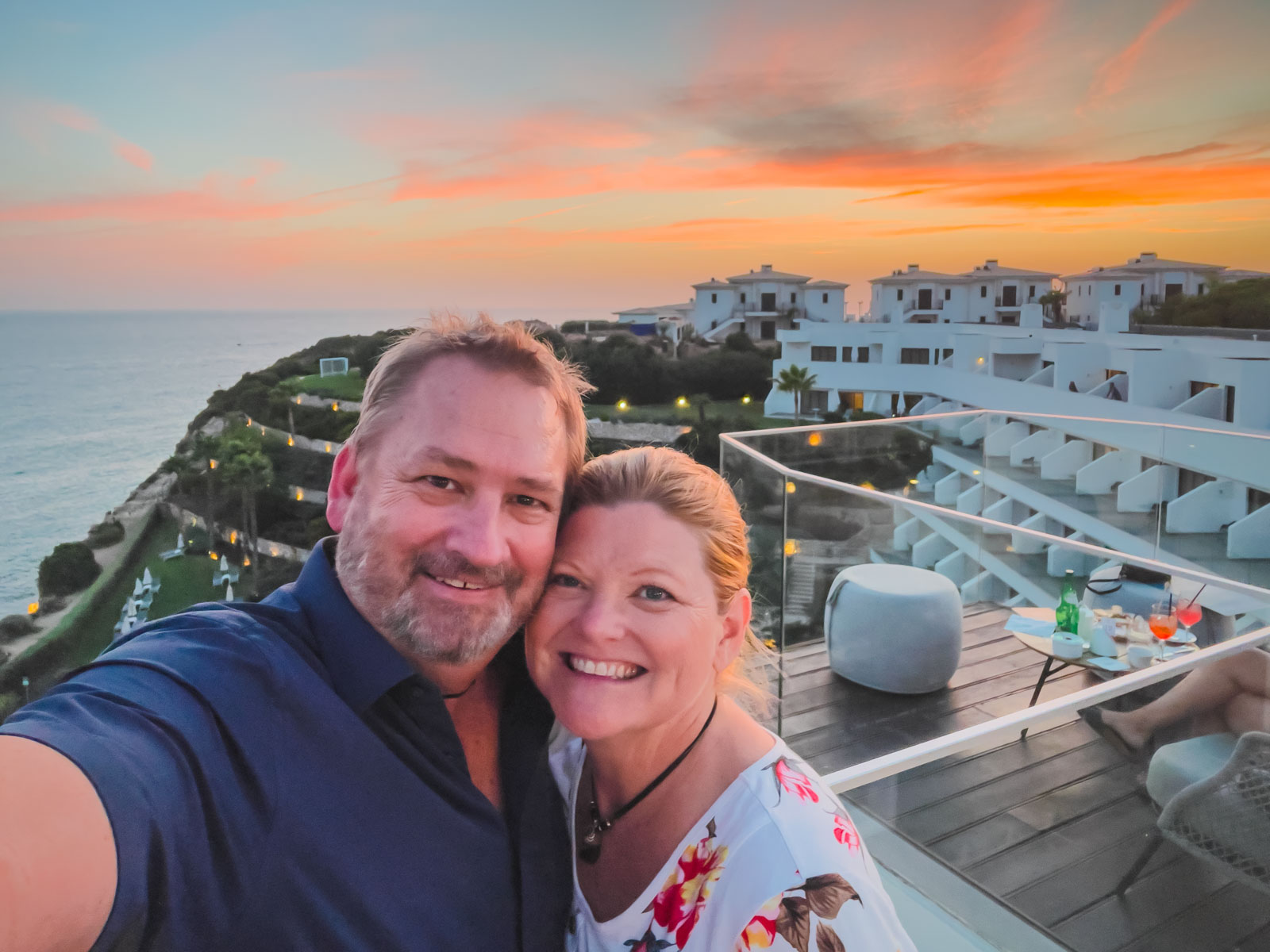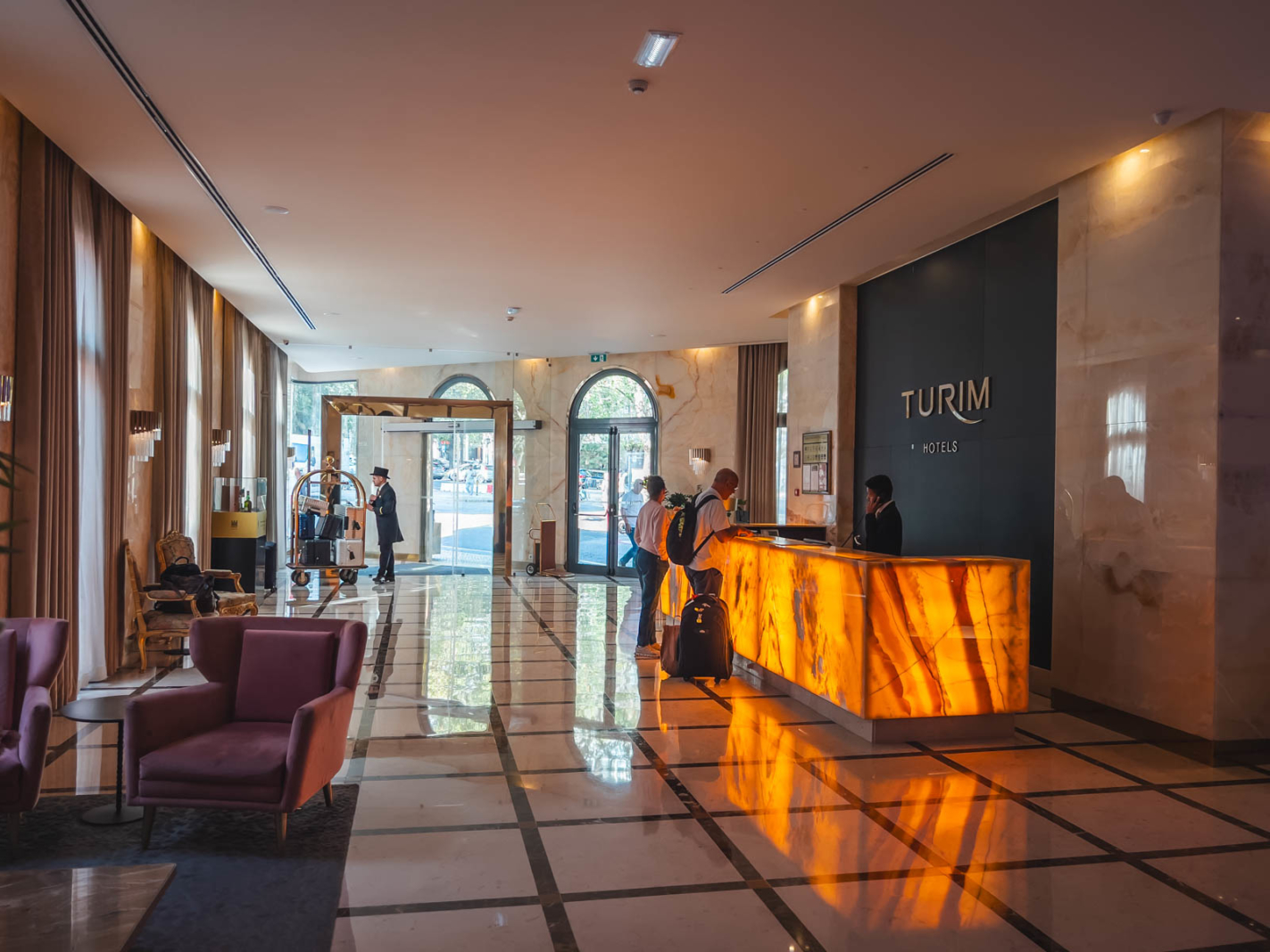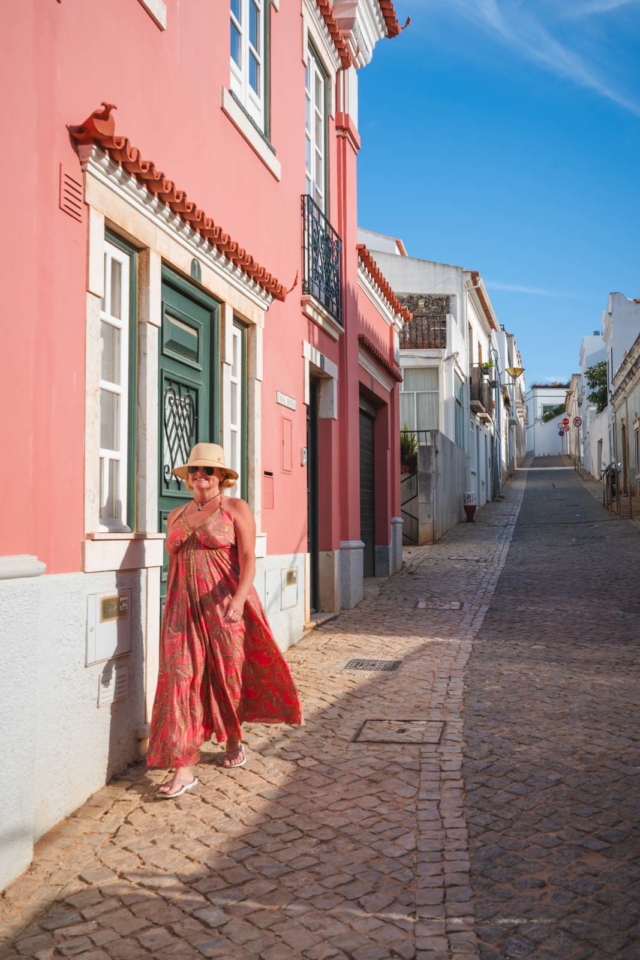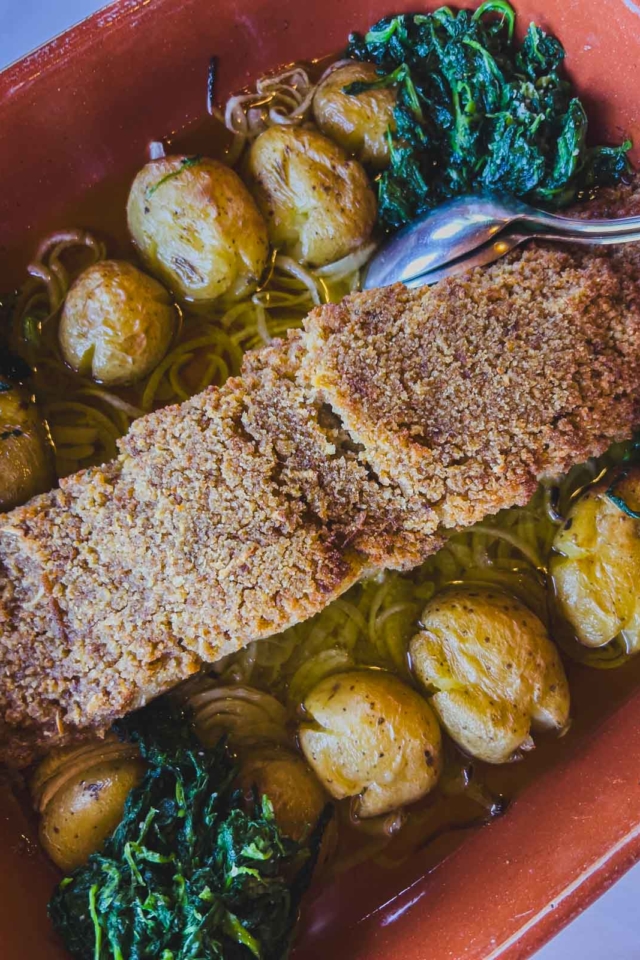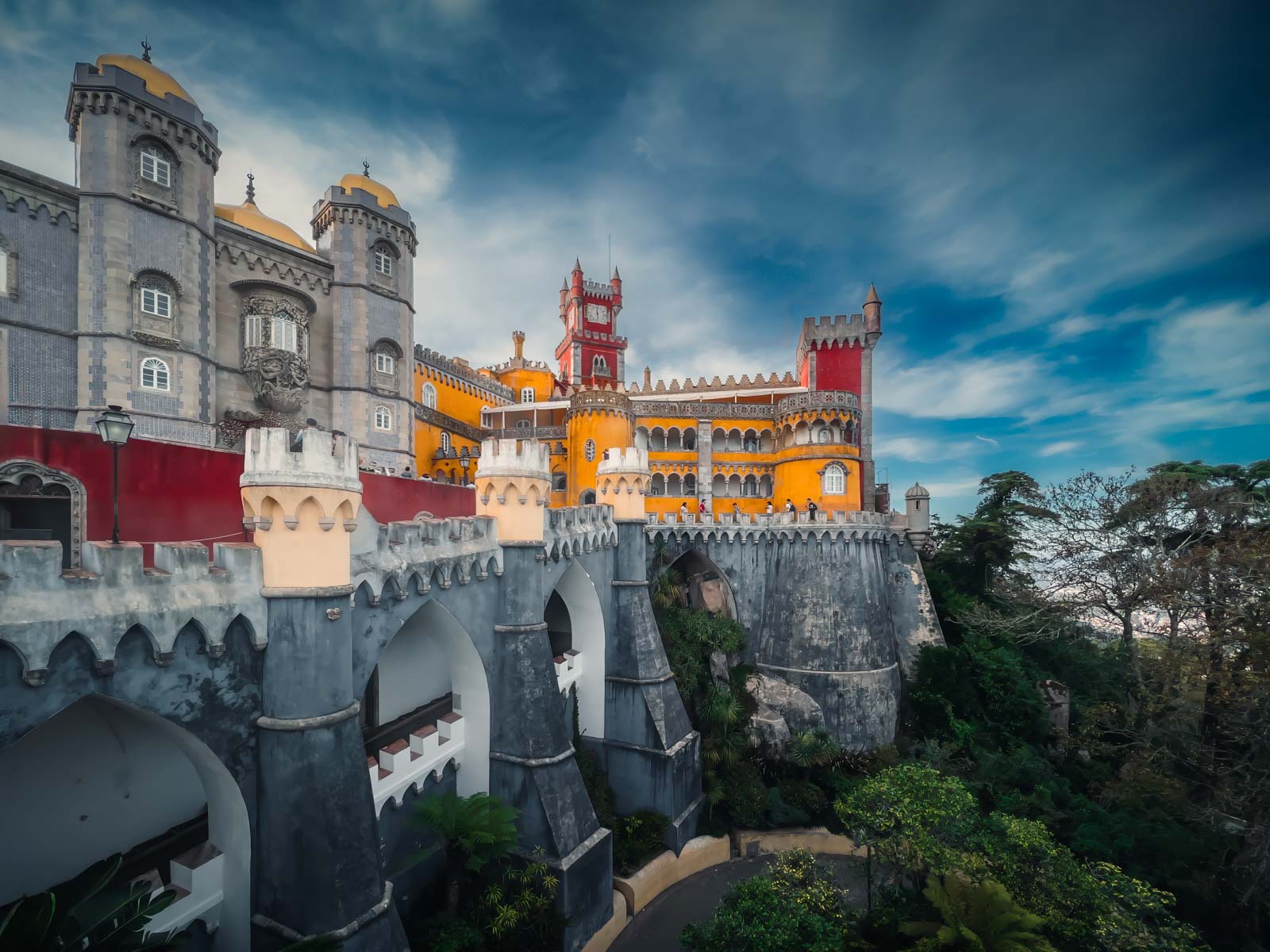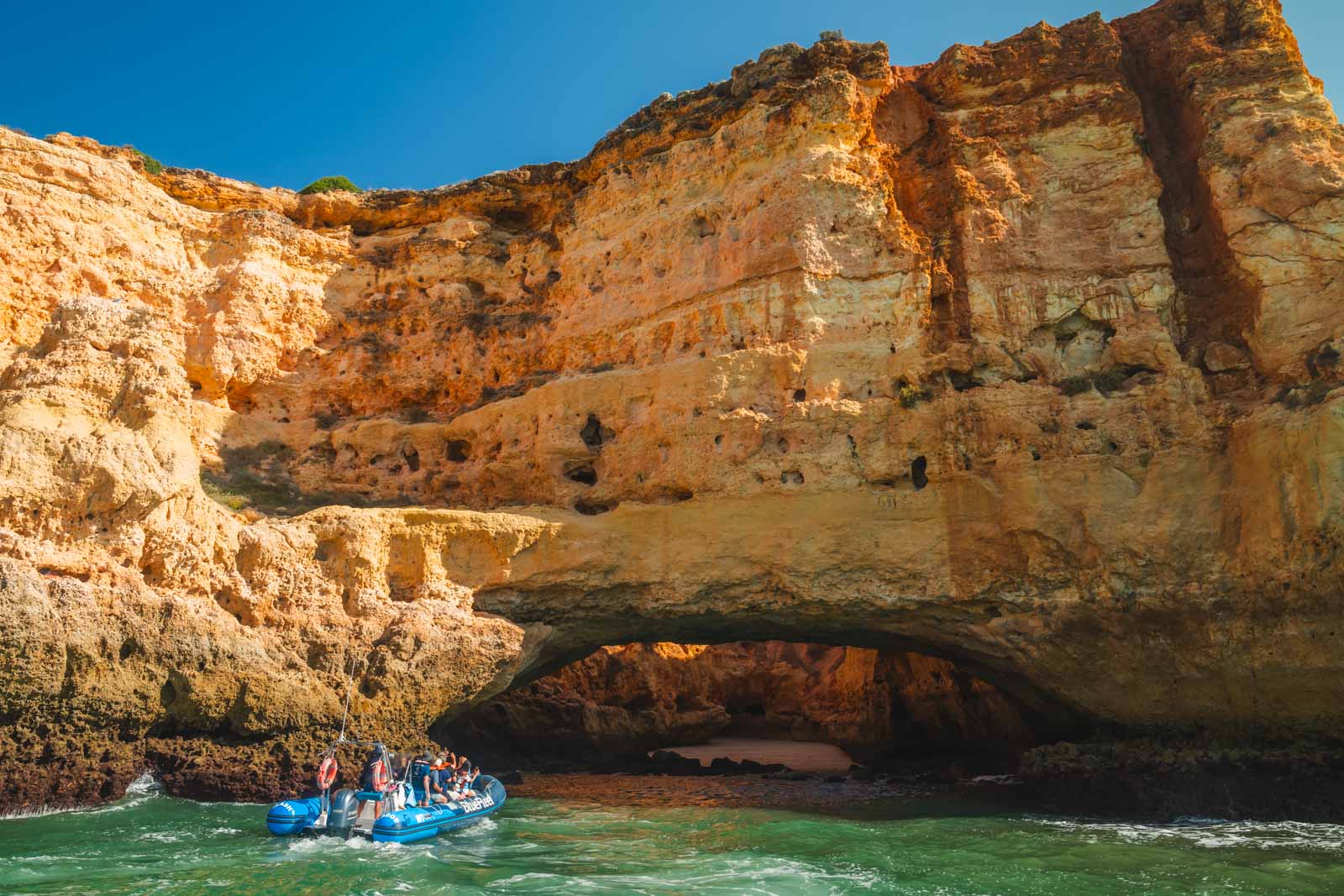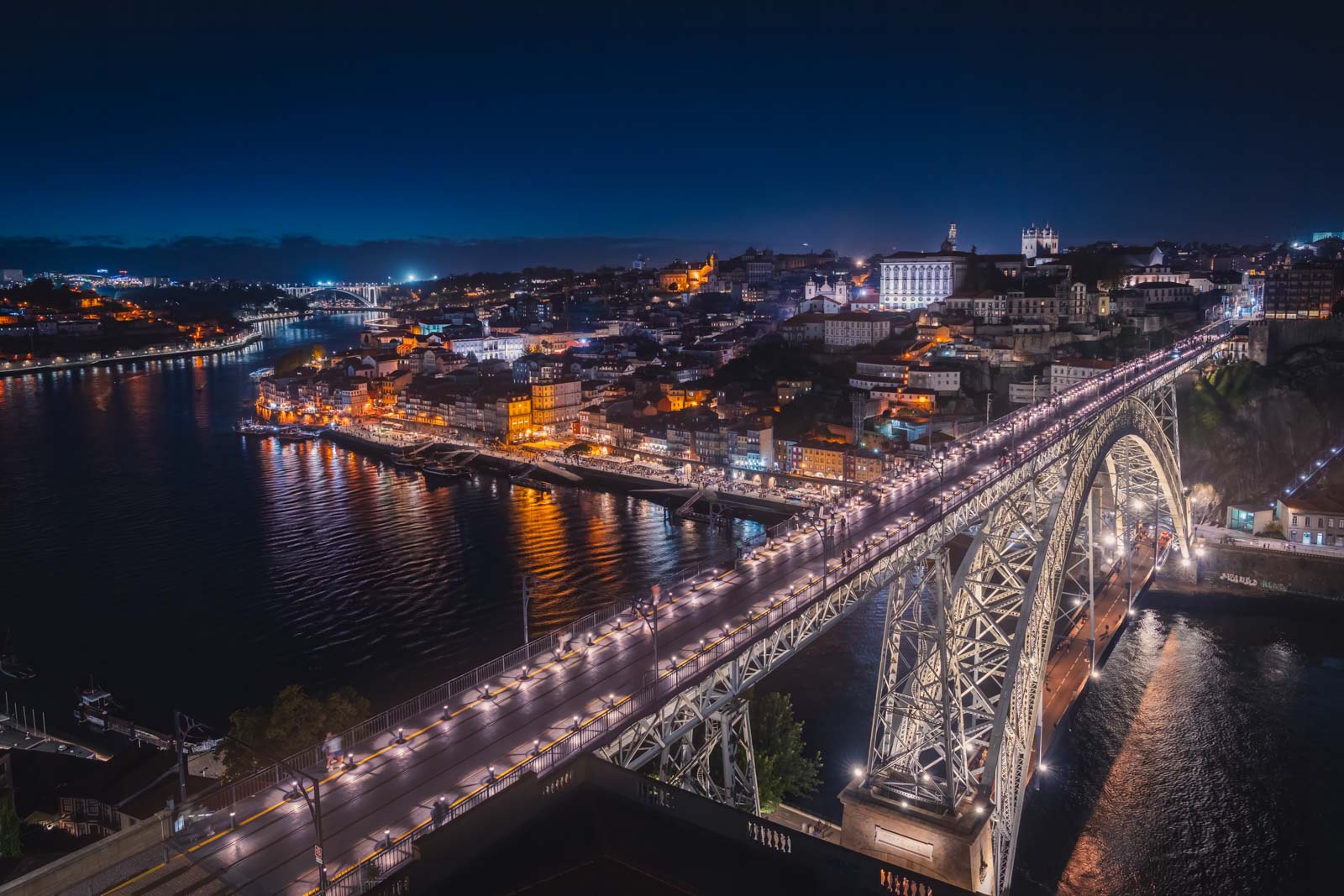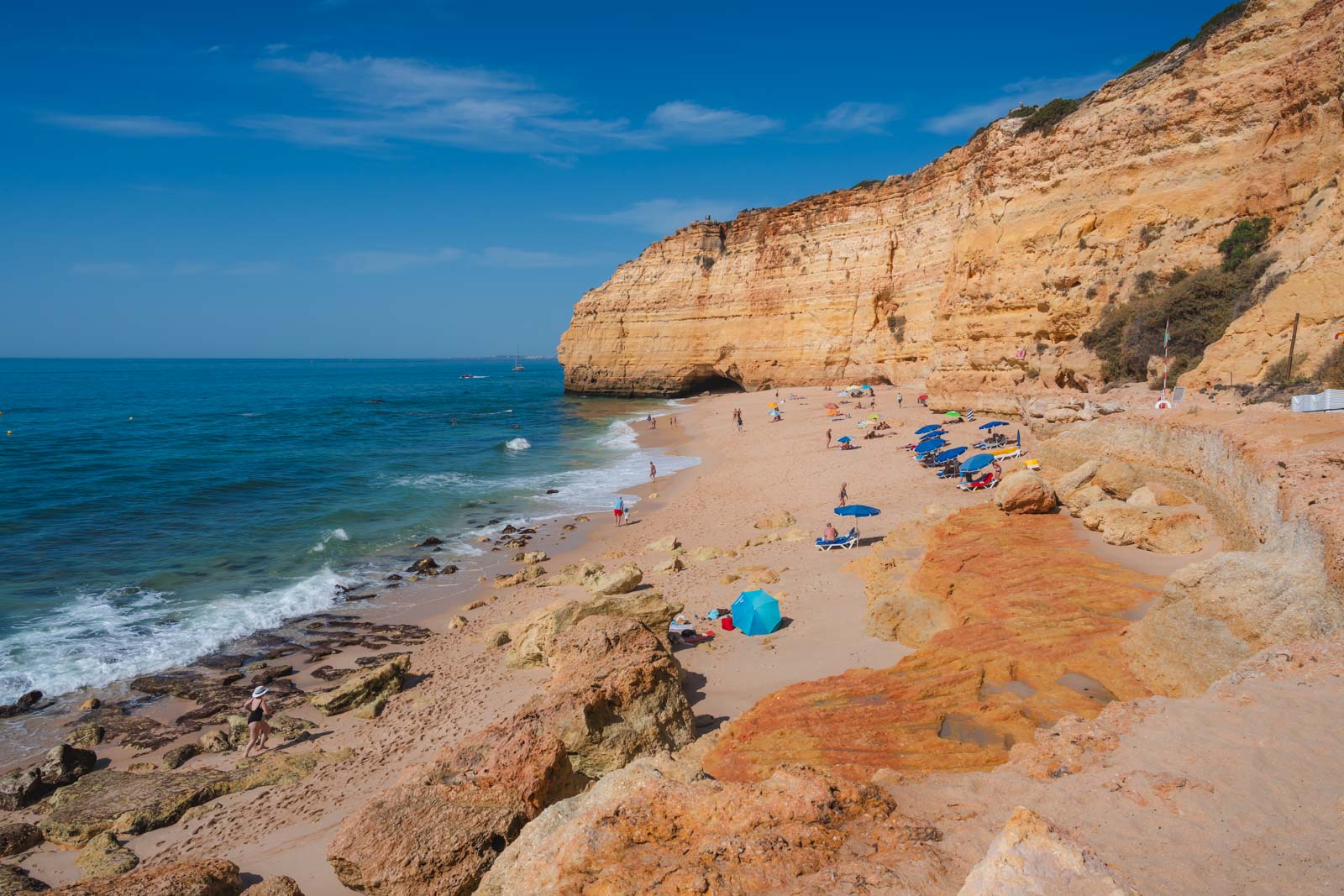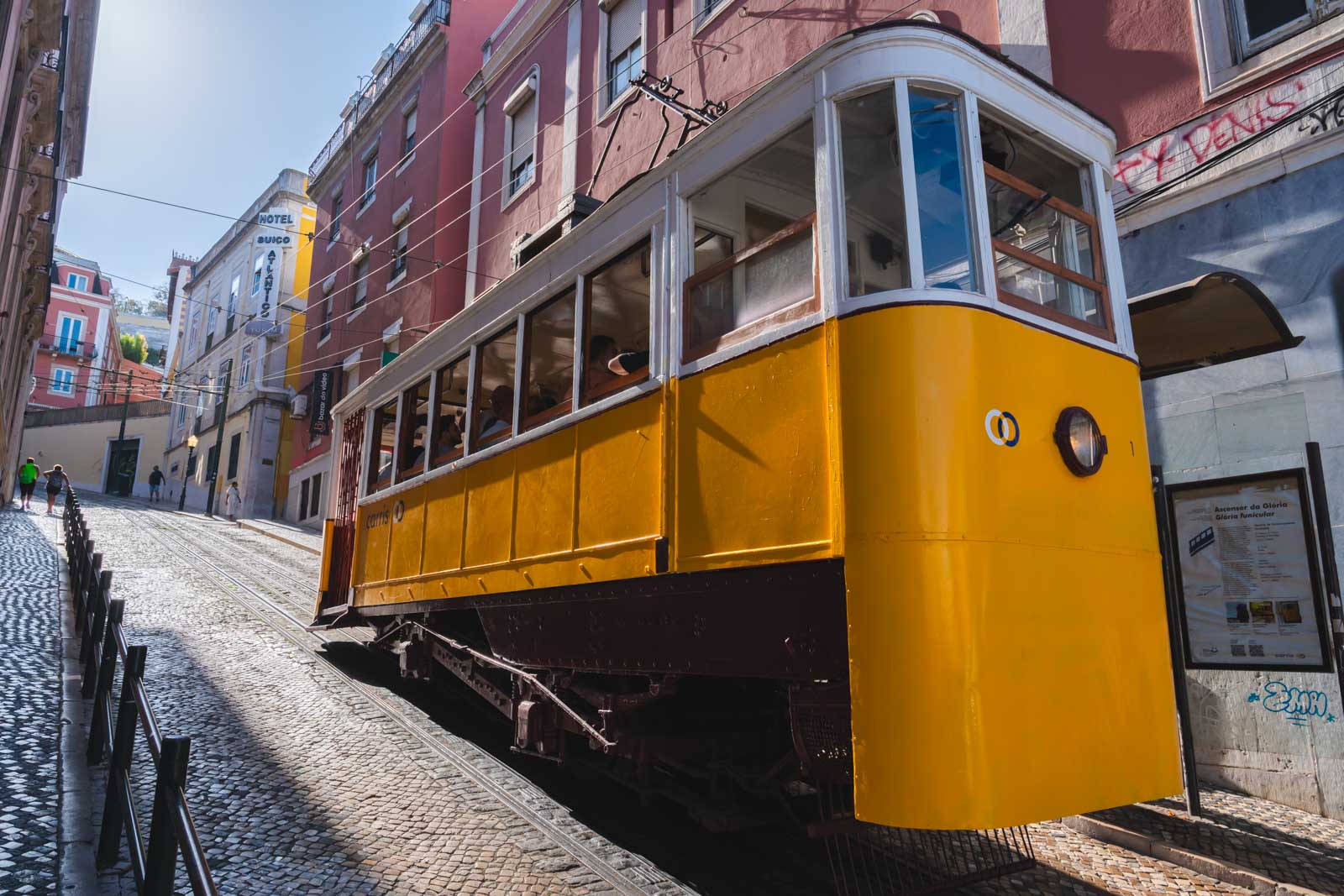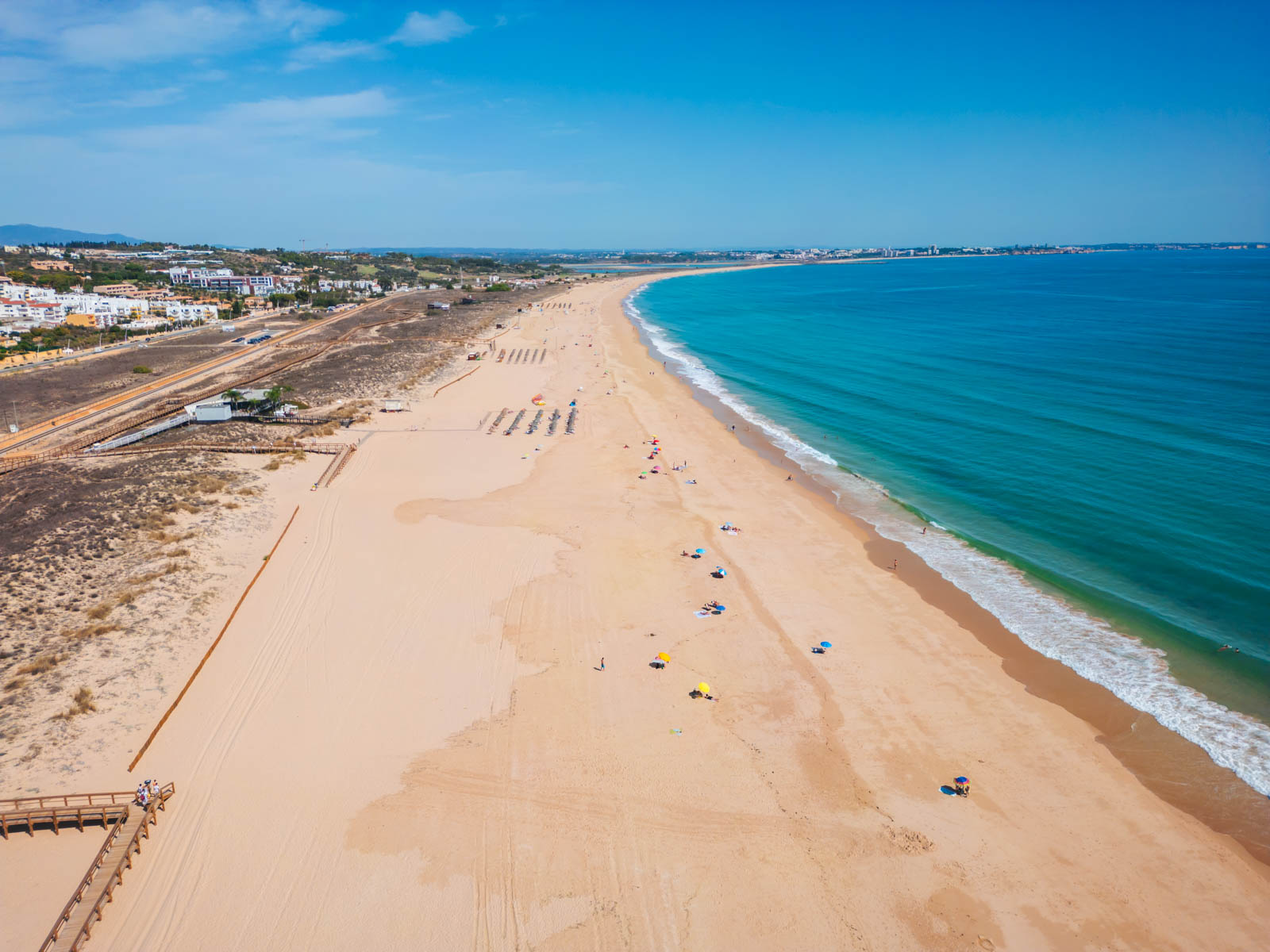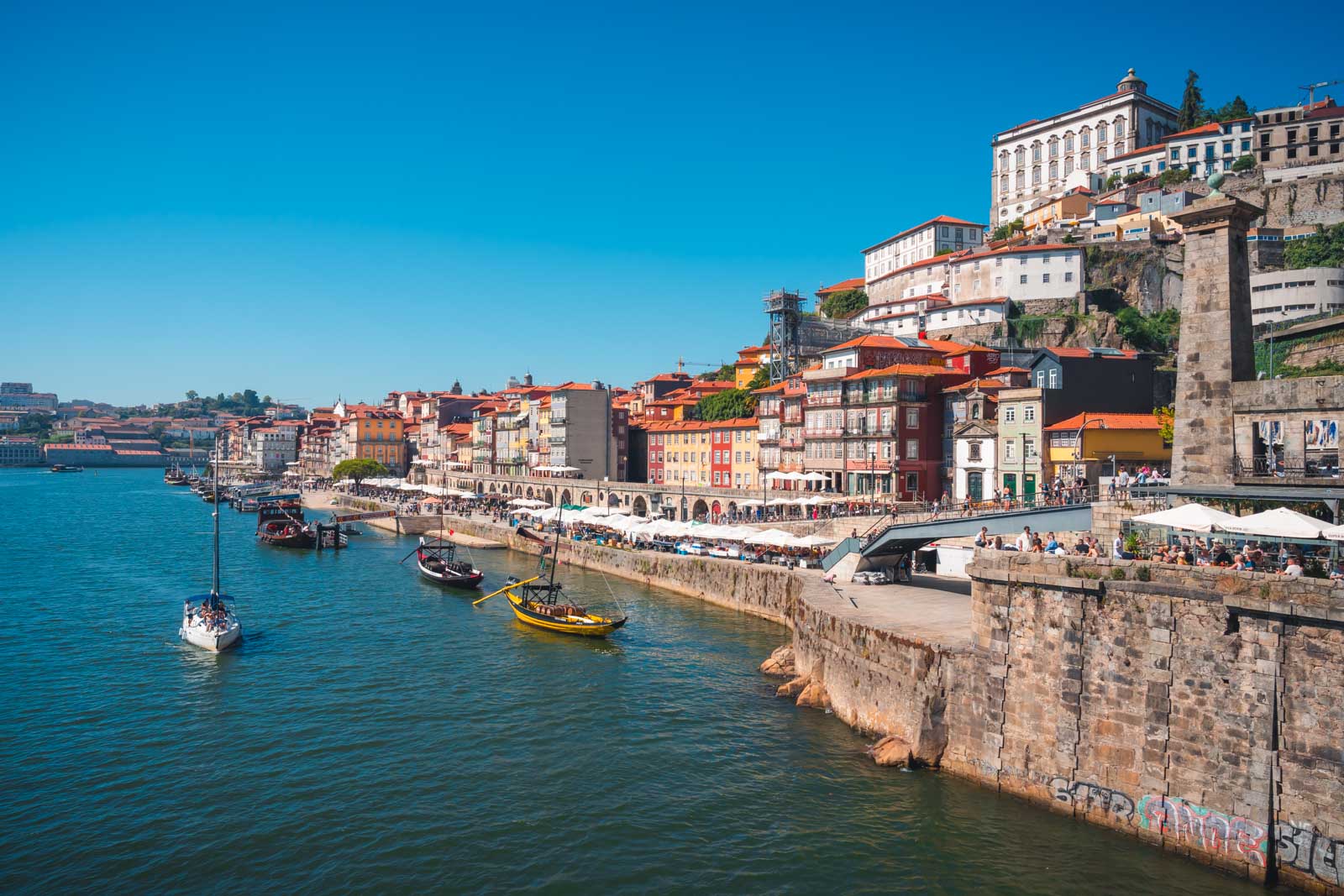We’ll start with the good news: Portugal is a small country and one of the most affordable countries in Western Europe. We have just returned from our 3rd time in Portugal and have a good idea what the costs of visiting this country are right now. It’s a captivating country of cliff-laden coastlines, with sea caves like Benagil and picturesque village scenery less than an hour inland. And that’s all before even thinking about its hearty cuisine, which is full of delicious pastries and seafood dishes.
As a whole, Portugal is not expensive to visit, especially when compared to other European countries. But if you want to save money even further, there are definite ways to do so. Whether you choose to stay in major cities or a remote village near the Algarve, this guide will show you what to expect to pay when visiting Portugal. Most importantly, it will help you stretch your precious dollars further to have an even more incredible experience for less money.
Is It Expensive to Visit Portugal?
As we’ve just said, Portugal is not one of the stereotypical expensive countries in Europe. Sure, you get the usual peak season rates, especially in tourist hotspots. But, overall, Portugal is great for those on a budget. It has such a laidback travel style that it naturally encourages lower prices. You have stunning landscapes and stunning beaches; chances are you’ll be lapping up nature for nothing more than public transportation costs at most.
Don’t just take our word for it, though. How much it costs for you to visit Portugal depends on your personal preferences. Here are the different categories and their costs per travel style that you should budget for.
Cost of Accommodation
Portugal has a great selection of accommodations and a solid tourist infrastructure. The main thing to note is that it has areas of condensed tourism, which mostly sit along its coastline, while inland areas, especially around the Spanish border, are nearly empty of mainstream visitors.
Larger cities like Lisbon and Porto offer wider choices in accommodation types, with many mid-range properties and even hostels. More remote areas have more B&Bs and vacation rentals. Costs vary depending on location, with demand being the factor that most spikes prices.
Keep in mind that for remote areas and vacation rentals, you’ll likely require car rentals at an extra cost. Accommodation location might seem like something you can skimp on to save money, but in reality, it often shifts the cost elsewhere – either to public transportation or car rental. So make sure you incorporate those additional expenses into your accommodation choice when picking where to stay in Portugal. Private properties in the countryside tend to be isolated, and with European bushfires, it’s wise to have a solid method of independent transport. However, we’ll cover that cost more in our “transportation in Portugal” section.
Another thing to remember is that peak seasons get busy, I mean really busy, and accommodation sells out quickly on the main tourist routes. You should always aim to book in advance, especially for summer travel dates or to super popular destinations like Porto, Faro, Albufeira, or Lisbon. The last thing you want is to get lumped with more expensive accommodation because you took your sweet time booking. The best deals go fast – be that because of location, accommodation quality, or value for money.
Accommodation is your largest travel expense when visiting Portugal, so it quite literally pays to do your research. We’ll review the leading accommodation types and give you an idea of what you can get for your buck.
Accommodation Types
Now that you understand all about tourism and accommodation in Portugal, we’ve got a more practical, numbers-based breakdown of where to stay. We know that budget shapes where you choose to stay when traveling. Here’s what you can expect for each budget level when visiting Portugal.
Budget: $40 a Night
Portugal has two levels of low-cost accommodation: hostels and budget hotels. We’ll tackle each of these separately, but as a general rule, you can expect to pay around $50-60 per night for hotels. While if you’re on a really tight budget, you can wangle hostel stays for around $20-30. Call it a happy average of around $40 per night.
Hostel stays typically involve dormitory rooms and shared facilities like kitchens. This is great for meeting new people and saving money on eating out. If you’re a bit of an introvert, you can still reserve private rooms at many hostels in Portugal; just expect to pay higher prices, like you’d spend on a cheap hotel room.
Here are a few examples of hostels with dorm room prices:
Budget hotels are better for those who want their own space and don’t mind eating out. You get comfortable but basic rooms and save money for more exciting things, like sightseeing.
Here are a few examples of budget hotels:
Mid Range: $100 a Night
Portugal is overflowing with mid-range hotels, especially in popular tourist destinations. If you compare mid-range prices with more budget options, you’ll find a rough estimate of around double the price. As a general rule, for mid-range prices, you get more centrally located accommodation with more tastefully decorated rooms and comfortable amenities. Think coffee machines and trendy furnishings rather than plain bed and bedside table designs.
Here are a few examples of mid-range properties across Portugal:
Luxury: $300 a Night
The sky’s the limit here, but start with rough estimates of around $180 to $400 per night, as you can often snag a great deal if you travel on off-season dates. Call it a happy average of $300 per night. If you’re happy to pay more money, though, luxury hotels can quickly rise to above $400 and even $500 a night—especially if you’re traveling in Porto or Lisbon.
As a general rule, though, you can get the ball steadily rolling for luxury accommodation once you pay over $180 a night. Here are a few examples:
Cost of Transportation in Portugal
If you take a city break to Portugal, we won’t lie; no public transport is necessary. If you stay central, you’ll be within walking distance of all the major sights. This is great in peak season, as it means you don’t have to pay anything or put up with all the queues and cramped seating areas. Portuguese cities are really easily accessible.
Even if you stay in the city outskirts, you’ll at most take one of the local buses, Metro, or train services—all of which cost around 2 dollars per one-way trip. So, overall, if you choose a city break, budget around a few dollars a day for transportation in Portugal.
Those staying for a week or more in Portugal, instead of a short city break, should consider public transport. How you should get across Portugal varies depending on your itinerary. For instance, many people visiting Portugal split a week between Lisbon and Porto. In this case, you can buy a train ticket to travel between the two. Train tickets from Lisbon to Porto cost less than $20 when booked in advance – a huge win. If you’re slowly traveling Portugal by train or bus, budget between $10-15 a day on average.
Whether or not tourists need a rental car varies depending on their Portugal itinerary. Are you planning on lots of day trips to remote areas where there are limited buses and trains? Or are you staying in a remote villa outside of major cities like Lisbon and Porto? If you answer yes to either of those, add a budget for car rentals to your total cost. If you rent a car, make sure you have good travel insurance.
If you are planning a short city break, Budget $2 to $4 a day at most.
If you are planning a holiday with day trips to remote areas/staying in remote accommodation: Budget $11 a day for average car rental prices.
If you plan a longer, multi-destination holiday, Budget around $15 a day on buses and trains.
What About Getting To Portugal To Begin With?
Another thing to consider is how you’ll get to Portugal. Round-trip flights are the most popular way. Flight prices obviously vary depending on your departure point, but round-trip flights from Europe are much cheaper than from places like the USA or Canada.
Luckily, Portugal has some major international airports with regular charters. The main three are Lisbon Airport, Faro Airport, and Porto Airport, with flights in peak seasons and beyond. Flight costs vary very little between these—it all depends on whether you want to visit the north, middle, or south of Portugal.
As an example, here’s what you should budget for round-trip flights to Porto, depending on your departure city:
New York City to Porto: $500-800 for a return trip.
Los Angeles to Porto: $800-1,000 for a return trip.
London to Porto: $100-150 for a round-trip ticket.
Rome to Porto: $80-120 for a round trip.
Dubai to Porto: $600-800 for a return ticket.
Sydney to Porto: $1,500-700 for a round trip.
Cost of Food in Portugal
You won’t break the bank with food in Portugal. The country has millions of local eateries that serve tasty homemade goods for a fraction of the price you can expect elsewhere in Europe—the average meal costs just $10 in Portugal, including a drink and a hearty main dish. A cappuccino costs less than $2, while if you head to the supermarket, you’ll find 1kg of chicken for under $7.50 and a pint of milk for around $1.
Of course, while your food budget will inevitably vary widely depending on your tastes and travel style, you should know that Portugal has a baseline budget-friendliness. You’ll spend less than you would in most of Europe to stick within your budget level of choice. Whether you choose fine dining every day or stick to grocery shopping and cooking for yourself at self-catered accommodation, Portugal is comparably cheap for its region when it comes to food.
So, what can you actually expect from food in Portugal? Major cities have plenty of fast-food restaurants and supermarkets. Smaller towns have more cafes and independent grocery stores. If you want to save cash on your travel costs in Portugal, the best way is grocery shopping and sticking to more casual cafes and restaurants. You don’t need the fine dining experiences anyway; homemade dishes at casual eateries are to die for.
We’ve got an entire guide on traditional food in Portugal, but here are a few of our favorites that you should try when visiting.
Pastel de Nata: A soft egg custard tart is popular in bakeries and coffee shops across Portugal. It’s served for breakfast and as a midday snack.
Piri Piri Chicken: Nandos launched this dish, which consists of chicken in a spicy sauce, to international fame. It’s available all over the country.
Bacalhau: Bacalhau is a salted and dried cod dish with a slightly acquired taste. Portugal is famed for its fishing history, and bacalhau can be found all over the coastline.
Arroz de Marisco: This is a really stereotypical Portuguese seafood dish. It’s not unlike paella, and it’s a tomato-based rice dish stocked with mussels, clams, prawns, and an overall punchy flavor.
Budget Food: $15 Per Day
If you are on a real budget, you’ll be cooking meals at your accommodation and predominantly relying on groceries. In this case, you can easily get by on $15 a day.
Mid-Range Food: $40 Per Day
A mid-range budget for food in Portugal should account for a takeaway lunch (think a panini or sandwich) and a sit-down dinner. Breakfast should either be a grocery snack, included in your hotel, or cooked at home.
Luxury Food: $100 Per Day
Luxury food budgets account for three meals out a day. In Portugal, a meal with three courses for one costs around $30 and includes a nice glass of wine. If you budget for lunch and dinner out, this totals up to $60, with an extra $20 for breakfast and $20 spare for ad hoc drinks like coffee. You won’t be counting pennies or trying to compare prices on rivaling menus; it is food tasting without mental tracking.
Cost of Activities
Activities in Portugal cost as much as you want them to cost. That might seem a bizarre statement, but hear us out. Most of its tourist areas are located along the coastline, with their main attractions being beaches with free entry to swim and sunbathe to your heart’s content. With its sunny climate, Portugal is a fantastic place to spend time outdoors in nature, totally for free. You could have a full day on the beach for free or spend around $10 for a lounger and drink.
Even in the main cities, Portugal has plenty of free attractions. Lisbon has seven free museums, for instance, without considering all the architecture, like cathedrals and dramatic bridges.
Before we get started on an activity budget, take into account some of these free things to do for each of its most famed destinations:
Faro
Walk the Old Town
Hit the beach at Praia do Faro
Faro Cathedral
Porto
Porto Cathedral
Ponte de Dom Luis
Mercado Bom Sucesso
Lisbon
Gulbenkian Museum
Church of Sao Roque
Walking its markets
Besides its free attractions, Portugal also has plenty of paid things to do. You can budget around $20 in entrance fees for things like aquariums, football stadium tours, castles, and palaces. Experience-based half-day tours should cost around $40, while more luxurious full-day tours to historical sites or areas of local culture can cost up to $100.
Here are a few examples of what you can expect to pay for paid activities:
Budget: $0 to $10 a Day
You can easily get around without spending more than $10 a day for those on a real budget. You’ll be sticking to free attractions, like museums with free entrance and plenty of beaches and hiking trails. This is the most cost-effective way of sightseeing, and it gives you a chance to try to find some hidden gems that Portugal offers instead of running to the usual sights. It’s like a chance to get a bit more creative.
Mid-Range: $50 a Day
If you want a mix of free and paid activities, a mid-range budget is for you. You should allow between $20 and $80 per day, with an average of $50 a day to spend on activities in Portugal.
Obviously, the activities themselves vary depending on where you are visiting. Still, as a general rule, you can factor in regular standard admissions for things like palaces and castles. You should then allow for one more expensive tour (like Sintra from Lisbon for $80) and spend the rest of your time on free activities.
Luxury: $150 a Day
A luxury budget will allow you to spend between $100 and $200 a day on sightseeing. Having a larger budget for attractions basically gives you a ticket for smoother experiences. You can book private experiences, more comfortable transfers, and splash on typical luxuries like wine tastings and gourmet food tastings.
This budget can factor in guided tours; a full-day tour booked privately often tots up to around the $200 mark (like this private Sintra tour). You can also enjoy skip-the-line tickets, perfect when traveling in peak season.
A Budget For a Week in Portugal
Now you have a general gist of all the different categories when budgeting to visit Portugal, let’s summarize. Most people visit Portugal for around a week, so we’ll tot up everything for you and give you a rough estimate of what you’ll need for your stay.
For the sake of this section, we’ll assume that you’ve already factored in extra costs like travel insurance. We’ll also assume that you are flying economy from the US at a $650 return flight (smack bang in the middle of average prices from NYC).
1. Accommodation
Accommodation in Portugal is at its steepest in popular tourist destinations like the cities of Faro, Lisbon, and Porto. Here, you’ll find highly sought-after hotels that hike up their prices in the peak season or just sell out completely, leaving you with much fewer options.
You have a mix of hostels, mid-range, and luxury hotels, though. That variety is nice as it gives you so many experience options. In more rural areas, you have choices of B&Bs and vacation rentals. Here’s what we’d budget for a week at each budget level.
Budget: $280
Mid-range: $700
Luxury: $2,100
2. Transport
Since you haven’t told us your specific itinerary, we’ll provide you with a template transport itinerary. We’ll allocate you $15 daily (enough for long-distance trains, taxis, a rental car or many metro rides). And as we mentioned before, we’ll operate on the basis that you’re flying economy from NYC at a rate of $650.
If this isn’t you, feel free to eliminate this section or add up your own total to the end budget.
Not including flights: Budget $15 per day at a maximum for transport in Portugal.
Including flights: Budget $775 for return flights from NYC and transport for a week in Portugal.
3. Food
Food is a big one; aside from flights and accommodation, it is your biggest expense. Everyone knows Portuguese food is good, so let’s get into budgeting for it.
Budget: $105
Mid-range: $280
Luxury: $700
4. Activities
Activities are a huge part of why you’re even visiting, so don’t compromise if you can help it. Have a list of non-negotiable attractions and activities you want to experience when visiting Portugal.
Budget: $70
Mid-range: $350
Luxury: $1,050
So, What Should You Budget For a Week in Portugal?
For those on a low budget, you should easily be able to spend a week in Portugal for under $1,200 with flights. A mid-range budget should be around $2,100, including flight prices. If you’re on a luxury budget, we’d suggest allowing just around $4,600 for a week in Portugal, including flights.
A Budget For Two Weeks in Portugal
What about if you want to stay even longer? We know how beautiful Portugal is, and if you want to travel across the country or even just soak up the sun longer in a villa, two weeks is perfect. To reiterate, we assume you’ve already factored in extra costs like travel insurance. We’re also putting in a “placeholder flight” as an example, with you flying economy from NYC, US, at $650 return.
Here’s what two weeks in Portugal will cost you:
1. Accommodation
Accommodation will obviously jump up from spending two weeks, not one, in Portugal. You might be staying in different locations and properties during this time, or you could get really cozy in one home away from home. Either way, here’s what to expect.
Budget: $560
Mid-range: $1,400
Luxury: $4,200
2. Transport
In two weeks, you’ll be much more likely to book car rentals, so make sure that your travel insurance is sorted. If not, you’ll most definitely be using lots of transport. Our $15 estimate should still cover you unless you have young driver premiums or something like that.
Not including flights: Budget $210 for two weeks, allowing for $15 per day on transport.
Including flights: Budget $860 for return flights from NYC and transport for two weeks in Portugal.
3. Food
Portuguese food honestly transforms your trip in its own right – it’s just so delicious. You’ll have everything from Portuguese tarts to spicy chicken and more seafood than you’ve ever seen in your dreams. In two weeks, you can rack up quite the food bill; let’s see what you will be spending per budget level.
Budget: $210
Mid-range: $560
Luxury: $1,400
4. Activities
Last but not least, we have activities: arguably the whole point of even traveling to Portugal. You’ve got so much that you can experience in two weeks. You can take many more day trips and experience more of Portugal’s wider regions, potentially even switching between different bases in a multi-destination trip.
Regardless of your itinerary, here’s what you can expect to pay for your activities in two weeks:
Budget: $140
Mid-range: $700
Luxury: $2,100
$2,100 is perfect for a luxury budget of $150 a day for sightseeing. This is enough for multiple private day trips, like spending $300-400 on a private tour of Sintra, and plenty of luxury experiences like wine tastings as well. You’ll get to all the main historical sites and attractions with smoother sailing, like skip-the-line tickets and private guides.
So, What Should You Budget For Two Weeks in Portugal?
For those on a low budget, $1,770 is enough for two weeks in Portugal with flights. A mid-range budget is around $3,520, including flights. For those with a luxury budget, allow $8,560 for two weeks in Portugal, including flights.
Budgeting For Portugal: FAQs
Budgeting for Portugal is super easy. There are several factors to consider when trying to save cash, including whether you’re staying in major cities, taking day trips to see local culture, or sticking to beaches and cuisine tasting. Hopefully, you now know what category you fall into and how much you should budget.
In this section, we’ll cover the most common FAQs. Here’s what people ask when visiting Portugal.
How much does a meal cost in Portugal?
Budget around $10 a meal at an inexpensive restaurant, including a main meal and drink. If a date night is more up your street, budget around $40 for a three course meal for two people at mid range restaurants.
Is Portugal expensive for Americans?
Not at all. Portugal is so much cheaper than America on average. It is around 50% cheaper to spend time in Portugal than in America, so Americans will find the country a nice break from those higher rates. Accommodation and food are cheaper, and there is less of a tipping culture (10% is optional and appreciated at formal restaurants).
Can you live in Portugal on $3000 a month?
You can easily live in Portugal for $3,000 a month. The average total cost for a family of four living in Portugal is $2,500 a month. For a single person, that’s just over $700.
Is Spain or Portugal cheaper?
As long as you don’t choose Lisbon and Porto, Portugal is massively cheaper than Spain. Porto and Lisbon are on a par with Spain’s most expensive cities—it’s just the way with European city break destinations, as everything gets hiked up with the demand from short-haul travelers.
What To Budget While Visiting Portugal
Travel expenses for a week in Portugal cost $1,200 on a tight budget, $2,100 on a mid-range budget, and $4,600 on a luxury budget, all including $650 return flights. There’s a lot of variation, and your budget to visit Portugal varies massively depending on your travel style and preferences. With that said, there’s the tourism infrastructure to cater to all budget levels—a huge bonus of visiting Portugal.
Looking for more inspiration ahead of your trip? Check out these 30 best things to do in Portugal, handpicked by yours truly. There’s so much to see across the entire country. And who knows, maybe you’ll have some extra cash to extend your stay now that you’ve figured out how to budget for Portugal. You could add on a trip to other Western European countries nearby, like Spain, France, or Germany.
Whatever your plans and budget type, have a fantastic stay in Portugal. You’ll love it.


